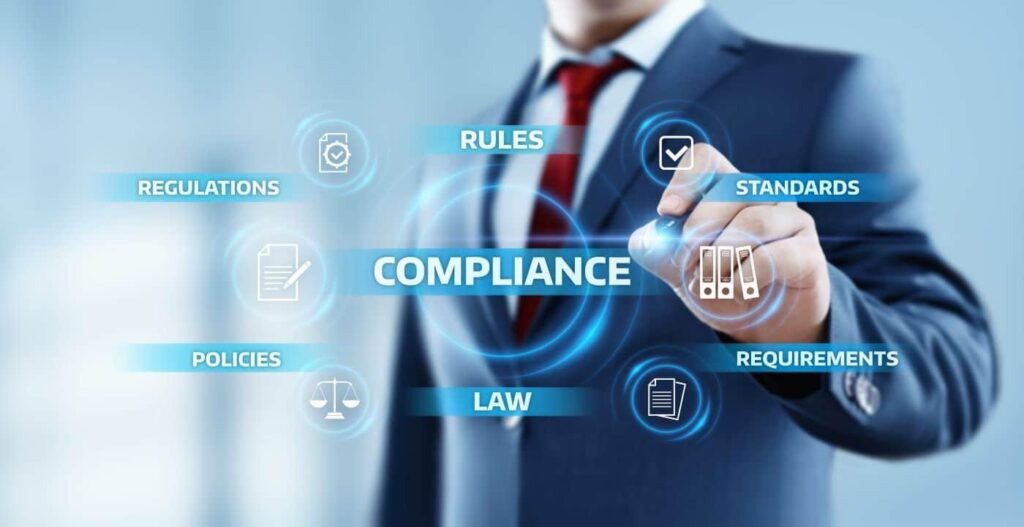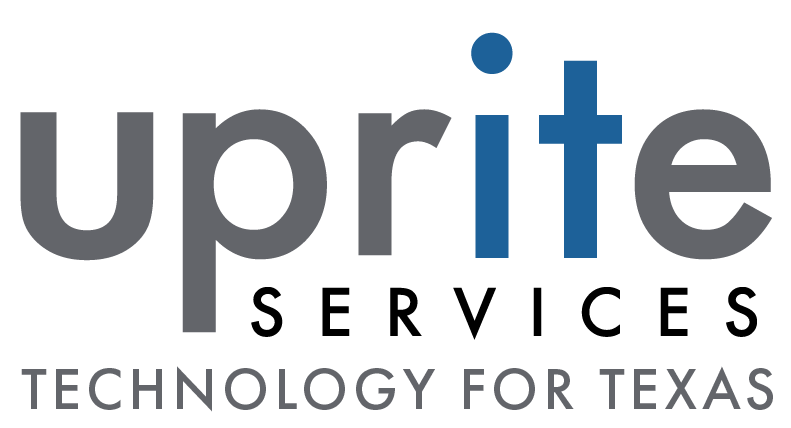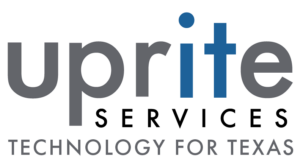
Cybersecurity is a vital concern for any business that handles sensitive financial data, especially for CPAs and financial firms. These businesses are often targeted by cybercriminals who seek to steal, manipulate, or destroy their valuable information. A cyberattack can result in significant losses, reputational damage, legal liabilities, and regulatory penalties for the affected business and its clients.
Therefore, it is essential for CPAs and financial firms to implement effective cybersecurity measures to protect their data and systems from unauthorized access and potential breaches. This requires a comprehensive and proactive approach that covers all aspects of cybersecurity, from risk assessment and management to security controls and incident response.
In this article, we will discuss the importance of cybersecurity for CPAs and financial firms, the common cyber threats they face, the regulatory and compliance requirements they must follow, and the best practices and strategies they can adopt to enhance their cybersecurity posture.
The Importance of Cybersecurity for CPAs and Financial Firms
CPAs and financial firms handle vast amounts of sensitive financial data, such as tax returns, financial statements, bank accounts, c redit cards, and personal information of their clients. This data is crucial for their business operations and client services, and it must be kept confidential, accurate, and available at all times.
Cybercriminals can use the stolen or corrupted data for various malicious purposes, such as identity theft, fraud, extortion, blackmail, or sabotage.

A cyberattack can have severe consequences for CPAs and financial firms, such as:
Loss of data and business continuity:
A cyberattack can result in the loss or destruction of critical data, which can disrupt the business operations and client services of CPAs and financial firms. For example, a ransomware attack can encrypt the data and demand a ransom for its decryption, or a denial-of-service attack can overload the systems and prevent access to the data. This can cause delays, errors, inefficiencies, and dissatisfaction for the business and its clients.
Loss of reputation and trust:
A cyberattack can damage the reputation and trust of CPAs and financial firms, both among their clients and the public. Clients entrust their financial data to CPAs and financial firms, expecting them to safeguard it and use it responsibly. A cyberattack can expose the data to unauthorized parties, violate the privacy and confidentiality of the clients, and compromise the integrity and quality of the data. This can erode the trust and confidence of the clients, and lead to legal disputes, complaints, or loss of business.
Loss of compliance and regulation:
A cyberattack can also expose CPAs and financial firms to legal and regulatory risks, as they are subject to various industry-specific and general regulations and standards that govern the security and protection of financial data. For example, the General Data Protection Regulation (GDPR) and the Sarbanes-Oxley Act (SOX) are two of the most prominent regulations that apply to CPAs and financial firms. These regulations require them to implement appropriate security measures, report any data breaches, and ensure the rights and interests of the data subjects. A cyberattack can result in non-compliance with these regulations, and lead to fines, penalties, sanctions, or lawsuits.
Common Cyber Threats Facing CPAs and Financial Firms
CPAs and financial firms face various cyber threats, each with different characteristics, objectives, and impacts. Some of the most familiar cyber threats are:
Phishing:
Phishing is a form of social engineering, where cybercriminals send fraudulent emails or messages that appear to be from legitimate sources, such as banks, government agencies, or clients. The emails or messages contain links or attachments that direct the recipients to malicious websites or download malicious software, which can compromise their systems or data. Phishing is one of the most prevalent and effective cyber threats, as it exploits the human factor and relies on the recipients’ curiosity, trust, or fear. Phishing can be used to steal credentials, personal information, or financial data, or to install ransomware or malware on the systems.
Ransomware:
Ransomware is a type of malware that encrypts the data or systems of the victims and demands a ransom for their decryption. Ransomware can affect individual files, folders, or entire drives, and can prevent the access or use of the data or systems. Ransomware can also threaten to delete, leak, or publish the data if the ransom is not paid. Ransomware can cause significant losses, disruptions, and damages for CPAs and financial firms, as they may lose their critical data, or pay a large amount of money to recover it. Ransomware can also expose them to legal and regulatory risks, as they may fail to meet their obligations or report the incident.
Data breaches:
Data breaches are incidents where unauthorized parties access, copy, modify, or steal the data of CPAs and financial firms, either through hacking, malware, or insider threats. Data breaches can compromise the confidentiality, integrity, and availability of the data, and expose it to misuse, abuse, or exploitation. Data breaches can also violate the privacy and rights of the data subjects, and expose CPAs and financial firms to legal and regulatory liabilities. Data breaches can damage the reputation and trust of CPAs and financial firms, and lead to loss of clients, business, or revenue.
Insider threats:
Insider threats are incidents where authorized users of CPAs and financial firms, such as employees, contractors, or partners, misuse or abuse their access or privileges to compromise the data or systems of the business. Insider threats can be intentional or unintentional and can be motivated by various factors, such as greed, revenge, curiosity, or negligence. Insider threats can cause significant damage, as they can bypass the security controls and exploit the vulnerabilities or weaknesses of the systems or processes.
Regulatory and Compliance Requirements for Data Protection
CPAs and financial firms are subject to various regulatory and compliance requirements that govern the security and protection of their financial data. These requirements aim to ensure the security and confidentiality of the data, protect the rights and interests of the data subjects, and prevent or mitigate the impacts of cyberattacks.

Some of the most relevant regulatory and compliance requirements for CPAs and financial firms are:
General Data Protection Regulation (GDPR):
The GDPR is a comprehensive and strict regulation that applies to any business that collects, processes, or transfers the personal data of individuals in the European Union (EU), regardless of their location or size. The GDPR grants various rights and protections to the data subjects, such as the right to access, rectify, erase, or port their data, and the right to object, restrict, or withdraw their consent to the processing of their data.
Sarbanes-Oxley Act (SOX):
The SOX is a federal law that applies to any public company that operates in the United States, or any foreign company that trades on the US stock exchange. The SOX aims to protect investors and the public from accounting fraud and errors and to improve the reliability and accuracy of the financial reporting and auditing of the companies. The SOX requires the companies to establish and maintain effective internal controls over their financial reporting, and to have their financial statements and controls audited by independent and qualified auditors.
Standards for Safeguarding Customer Information (Safeguards Rule):
The Safeguards Rule is a regulation issued by the Federal Trade Commission (FTC) under the Gramm-Leach-Bliley Act (GLBA), which applies to any business that is significantly engaged in providing financial services, such as CPAs and financial firms. The Safeguards Rule requires businesses to develop, implement, and maintain a written information security plan that describes how they will safeguard and protect their customer information, which includes any nonpublic personal information that they obtain from or about their customers.
Best Practices and Strategies for Enhancing Cybersecurity Posture
CPAs and financial firms can adopt various best practices and strategies to enhance their cybersecurity posture and protect their sensitive financial data from cyber threats.

Some of the best techniques and strategies are:
Conduct regular risk assessments and audits:
CPAs and financial firms should conduct regular risk assessments and audits to identify and evaluate the cyber risks and vulnerabilities that they face and to measure and monitor the effectiveness and compliance of their security controls and policies. Risk assessments and audits can help CPAs and financial firms prioritize and allocate their resources, improve and update their security measures, and detect and respond to any incidents or breaches.
See related: Cyber security service Houston.
Implement a layered defense-in-depth approach:
CPAs and financial firms should implement a layered defense-in-depth approach, which involves applying multiple and complementary security controls at different levels and stages of their systems and networks, such as the perimeter, the endpoints, the data, and the users. A layered defense-in-depth approach can provide holistic and comprehensive protection for the data and systems and can prevent or mitigate the impacts of a single point of failure or compromise.
Educate and train the users:
CPAs and financial firms should educate and train their users, such as employees, contractors, or partners, on the importance and best practices of cybersecurity, and on the policies and procedures that they must follow. Education and training can help to raise the awareness and skills of the users and to reduce the human errors or negligence that can lead to cyberattacks. Education and training can also help to foster a culture of security and responsibility among the users and to encourage them to report any suspicious or anomalous activities or behaviors.
Backup and encrypt the data:
CPAs and financial firms should backup and encrypt their data, both in transit and at rest, to ensure its availability and confidentiality. Backup and encryption can help to prevent the loss or destruction of the data and to recover it in case of a cyberattack. Backup and encryption can also help to prevent the unauthorized access or disclosure of the data and to protect it from tampering or alteration.
Update and patch the systems and software:
CPAs and financial firms should update and patch their systems and software regularly, to fix any bugs, vulnerabilities, or flaws that can be exploited by cybercriminals. Updates and patches can help to improve the performance and functionality of the systems and software, and to enhance their security and resilience. Updates and patches can also help to prevent the infection or propagation of malware or ransomware on the systems and networks.
Learn more about Cyber Security Service Texas
Conclusion
Cybersecurity is a crucial and challenging issue for CPAs and financial firms, as they handle vast amounts of sensitive financial data, which makes them attractive and vulnerable targets for cybercriminals. Don’t let cyber threats compromise your financial data. Contact Uprite IT Services today and get the best cybersecurity solutions for your CPA or financial firm. Uprite IT Services has over 20 years of experience in providing secure, proactive, and responsive IT support to businesses throughout Texas. Whether you need advanced cybersecurity, responsive IT support, proactive IT management, or future-proof IT solutions, Uprite IT Services has you covered. Schedule a free consultation with a business IT expert and find out how Uprite IT Services can help you safeguard your sensitive data and achieve your business goals.



